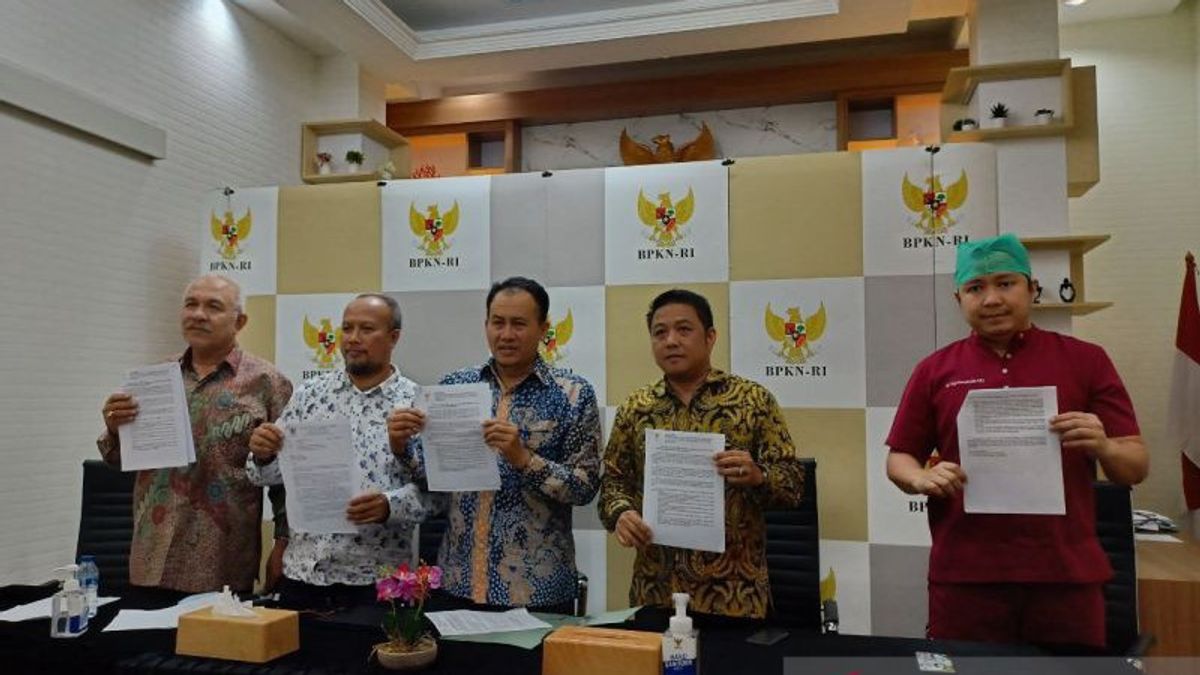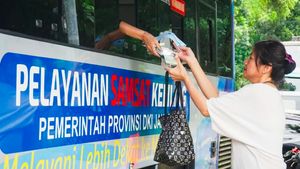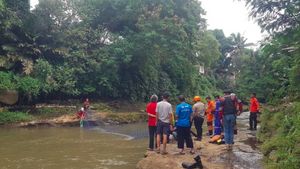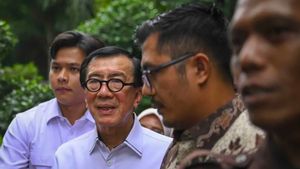The fact-finding team (TPF) of the National Consumer Protection Agency of the Republic of Indonesia (BPKN-RI) revealed eight crucial findings in cases of atypical progressive acute kidney disorders (GGAPA).
"We found eight related to the findings of the fact-finding team involving all sectors in the GGAPA case," said TPF Chairman Mufti Mubarok during a press conference in Jakarta, Antara, Wednesday, December 14.
First, Mufti said TPF found an disharmony of communication and coordination between agencies in the health and pharmaceutical sectors in handling the surge in GGAPA cases.
Second, the negligence of the pharmaceutical sector agency or authority in the supervision of medicinal raw materials and the circulation of medicinal products.
"Post-markets, pre-markets, and so on are extraordinary debates related to supplies from upstream related to raw materials for EG and DEG. Finally, we concluded that there was negligence in the agency or authority of the pharmaceutical sector," said Mufti.
Third, Mufti continued, TPF found intransparents related to prosecution by law enforcers to the pharmaceutical industry. Fourth, there is no special protocol for handling crises related to emergency issues in the health sector such as a spike in GGAPA cases.
"This shows that the protocol in the area in the health sector and so on until the Ministry of Health and BPOM is still overlapping," he said.
Fifth, no compensation has been given to the families of GGAPA victims from the government. Sixth, no compensation has been given to victims of GGAPA from the pharmaceutical industry.
Seventh, EG and DEG chemicals are materials that are categorized as harmful to health and require special arrangements.
Eighth, the involvement of consumer protection agencies or authorities in the health and pharmaceutical sector issues has not been involved.
"I think because the victims are consumers, our involvement is in BPKN, YLKI, doctors, LPSK, of course it is important when handling this case," said Mufti,
In addition, Mufti said TPF findings also show that most of the victims of GGAPA do not have comorbidities. Based on data from the Ministry of Health, 74 percent of the 324 victims were toddlers and almost all of them came from middle to lower class families.
From these findings, TPF also provided four recommendations, namely the government and the pharmaceutical industry need to provide assistance or compensation as well as compensation to the families of GGAPA victims who have died, victims who are still being treated, and victims who still have to take outpatient treatment.
Then, the government also needs to assign the Financial and Development Supervisory Agency (BPKP) to conduct a comprehensive audit of the supervision and distribution of medicinal products including the use of raw materials.
The government also needs to ask the police to take firm action against the party responsible and carry out a clear development of the case. In addition, it is also necessary to strengthen institutions that protect consumers independently.
On the same occasion, Chairman of BPKN RI Rizal E Halim said that his party would convey the findings to President Joko Widodo.
"We ensure that reports from the BPKN Fact Finding Team regarding the GGAPA case will be submitted to the President. This finding is expected to be a good momentum for all stakeholders to improve services in this very vital sector, so that in the future we can carry out risk mitigation," said Rizal.
The English, Chinese, Japanese, Arabic, and French versions are automatically generated by the AI. So there may still be inaccuracies in translating, please always see Indonesian as our main language. (system supported by DigitalSiber.id)
Most Popular Tags
#Prabowo Subianto #New Year #pdip #Hasto Kristiyanto #nataru #NatalPopular
27 Desember 2024, 02:36
27 Desember 2024, 00:30
27 Desember 2024, 01:25













